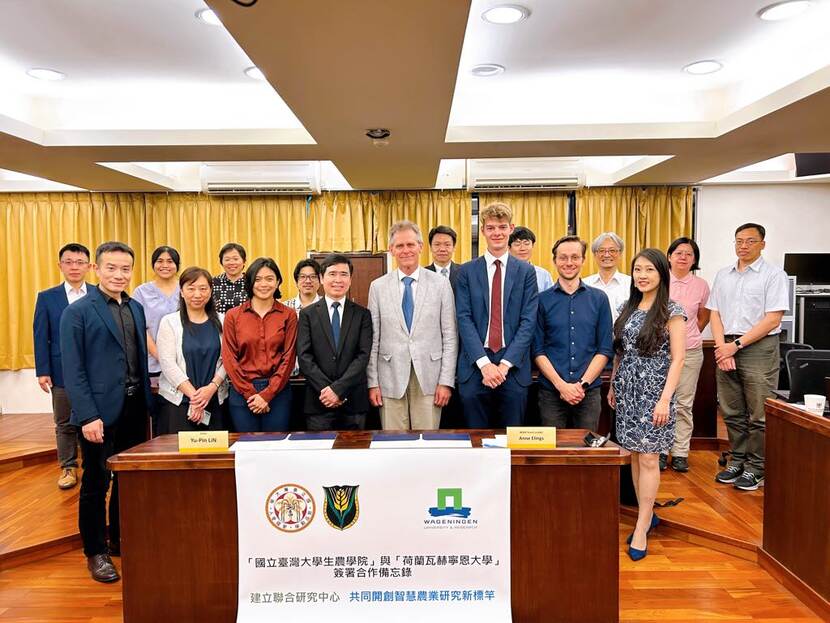Wageningen Plant Research visits Taiwan to explore cooperation in horticulture
Taiwan has the national ambition to achieve carbon neutrality by 2050. This transition includes two essential governance foundations in R&D and climate legislation. As agriculture is an important part of Taiwan's economy, in 2022, the Ministry of Agriculture announced the roadmap for net-zero emission in the agriculture sector and committed to a net-zero emission goal by 2040. To reach these goals, Taiwan seeks cooperation with international partners. Wageningen Plant Research (part of Wageningen University & Research) visited Taiwan to explore the potential of cooperating on different themes in horticulture.

Background
The visit aimed to identify collaboration opportunities with Taiwanese partners (government, private, and knowledge institutes). Participants included Dr. Anne Elings (Team Leader in Physiology and Product Quality), Dr. Stef Maree (Researcher of Machine Learning in Autonomous Greenhouse), and Ms. Priska Prasetya (Business Developer Plant Sciences Group). The visiting trip was accompanied by Agricultural Director Mr. Rick Nobel and Agricultural Advisor Ms. Wendy Liang.
The Key topics of this visit included:
- Crop physiology and modeling of horticulture crops in the autonomous greenhouse
- Application of machine learning (AI) in autonomous greenhouse and robotic systems
- Development of climate-resilient crops with automated digital phenotyping for targeted breeding
MOU on Joint Research Center
The College of Agriculture and Bioresources at National Taiwan University (NTU) and WUR Plant Research signed an MOU to jointly establish a research center to address the severe impacts of climate change on global agricultural cultivation and production systems. In response to this challenge, the focus is developing technology-driven agriculture that optimizes facility cultivation and production intelligence.
This collaboration would integrate the strengths and research resources of both institutions, focusing on optimizing crop growth models for precise agricultural management, enhancing greenhouse crop production efficiency through artificial intelligence technology, applying data science to establish digital phenotypic analysis technology to screen for climate-resistant crop varieties, and developing advanced circular agricultural models to reduce waste generation and carbon emissions, leading globally in benchmark technologies. The aim is to combine WUR's leading greenhouse technology and industry competitiveness in the temperate regions of The Netherlands with NTU's scientific and practical experience and technology in the subtropical areas of Taiwan, to create an international, innovative platform for agricultural research.
Other visits
In addition to meeting with NTU, other visits during this trip included research institutions such as the World Vegetable Centre and private enterprises, including greenhouse facilities for hydrangeas and lettuce, orchid growers, and agricultural AI and IoT technology companies, to explore the potential for public-private-partnership proposals and seek new opportunities for future automated greenhouse collaboration.